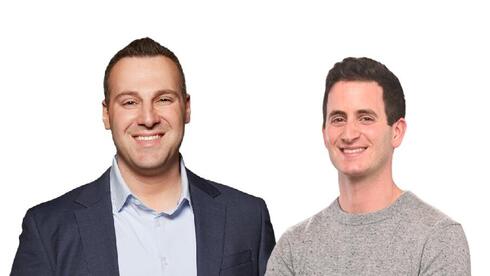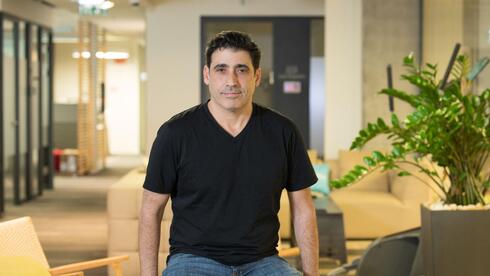
Mind the Tech London 2024
Generative AI bubble: Experts warn of overinflated market
The participants in the panel at Calcalist and Bank Leumi’s Mind the Tech London conference included Davor Hebel, Managing Partner at Eight Roads, Saul Klein, Founding Partner at LocalGlobe, Maya Eisen Zafrir, CEO of LeumiTech, Eze Vidra, Managing Partner at Remagine Ventures and Gideon Argov, Founder and Managing Partner at New Era Capital.
Mind the Tech "Adapting to the Future" panel
(Photo: Alex Kolomoyski)
At the Mind the Tech London conference, industry leaders voiced concerns about a bubble in generative AI investments. The panel included Davor Hebel, Managing Partner at Eight Roads, Saul Klein, Founding Partner at LocalGlobe, Maya Eisen Zafrir, CEO of LeumiTech, Eze Vidra, Managing Partner at Remagine Ventures, and Gideon Argov, Founder and Managing Partner at New Era Capital.
We thought it would be a year of rebound and recovery, but it is a year very similar to 2023 and now we see that the interest rate is falling and the elections are approaching in the U.S. and there may be a difference in the investment landscape.
Davor Hebel: "I continue to be optimistic. 2023 was the bottom of the cycle, but the market takes time to recover with high interest rates. We have many companies that are of a very significant scale and can be leading companies with a turnover of over $100 million. The markets are still very conservative and there is still a slowdown, but in 2025 there will be an opportunity for companies with revenues of hundreds of millions of dollars. We will see many transactions of acquisitions and mergers. We have had three exits in Israel in the last months."
Saul Klein: "It's great that you're holding this conference in London. There are two cities in EMEA that have more than 100 unicorns, and they are Tel Aviv and London. We try to choose companies in their early stages and turn them from very young companies into unicorns. We have dozens of companies that make hundreds of millions of dollars, a significant number of them are in the fintech industry. We don't think about macro because we invest in long-term entrepreneurs. Seven of the top ten companies in the world didn't exist 50 years ago."
Maya Eisen Zafrir: "The first thing you see is investors who see value in innovation in Israel and open offices in Israel and look for opportunities. Technology in Israel will be stronger in the future and I see that many investors also feel this way. We are optimistic about 2025. We will see the impact of the corporate funds that will strengthen our position. They have doubled their investments in the last five years. We see more credit activity for the tech world and not just capital investments. We will see much more activity driven by credit."
You invest in the earliest stages of companies and we hear that there are far fewer companies.
Eze Vidra: "In general, it is difficult to ignore the war in Israel. Entrepreneurs know they are in a tough market and they know it won't be easy. There are many opportunities for investors like me. In the last few months, we have made five investments in very early stages and I really appreciate entrepreneurs who are willing to tackle such a time. Of the companies we have invested in two have come a second time and they know who to work with and choose investors who have a quality network and access to the market."
What was the experience like of raising capital during such a difficult time?
Gideon Argov: "We will look back on this period and see it as the best period to invest in Israeli companies in recent years. We raised half of it during the war, we made seven times the capital and the second fund is also very profitable and the quality of the entrepreneurs today is of very high quality. We see people who have built good businesses in the past and they are looking for what we know how to provide and that is to take them from Israel and make them global. We have offices in Israel, the United States and London and we can build the road for them. The best thing we have is quality entrepreneurs and it is a pleasure to work with them and bring them to the global level.
"It is very challenging for Israeli companies to raise money today and many international investors are very concerned about investing in a war zone and it is enough to have someone who will say why invest in Israel and not in Singapore."
Davor Hebel: "We never thought too much about a significant value and we always focused on healthy growth and especially on companies that grew in a healthy way and not companies that raised at an unrealistic value. Our companies know that it is possible to get a good deal even if it is not worth what they wanted and is valued even lower than in the past."
Saul Klein: "We look for companies for the long term. There are basic things that do not change - revenues, cash flow, profitability are the basis. We investors build companies for the long term. In England there are hundreds of companies that make $100 million in revenue. Innovation is not a sideshow but the most important thing of the economy. The industry is changing a lot, there are funds that have raised billions for financing in a different way and not just by issuing or merging. We are in a very mature industry that has found many ways to finance this maturity of the market that will prevent the new bubble.”
Gideon Argov: "I think the bubble exists in all kinds of sectors. I see the generative AI field as a bubble as well as in the cyber fields, but in Israel it is a good time to enter because I don't feel pressure from ventures to sign quickly like in the past. There is much more flexibility and patience. Today a lot are afraid to invest and this is a good time to invest."
Eze Vidra: "We started investing in generative AI from 2019 and looked at this field in many ways. There is a bubble in the field, but there are many opportunities there and there is a potential of trillions of dollars."
Maya Eisen Zafrir: "Israel may be late to AI, but it is catching up. I think Israel has the ability to adapt quickly, especially in the area of investments, and companies are being built here that will survive and gain value due to revenues on global value."
Watch the full panel discussion in the video above.
















